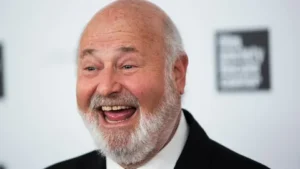I’ll be honest with you – the first time I really understood Malcolm X, I was sitting in a coffee shop reading his autobiography at 2 AM. I couldn’t put it down. Here was a man who’d been written off by society, who’d made every mistake in the book, yet somehow transformed himself into one of the most influential thinkers of the 20th century. No silver spoon. No fancy degrees. Just raw intelligence, relentless self-education, and an unshakeable commitment to truth.
Malcolm X wasn’t interested in making white people comfortable. He wasn’t interested in being the “acceptable” face of Black resistance. And that’s exactly what made him dangerous – and necessary.
In a world where we’re constantly told to tone it down, play it safe, and not rock the boat, Malcolm X’s life stands as a testament to something else entirely: the power of radical honesty, unapologetic self-determination, and the courage to evolve even when the whole world is watching.
The Man Behind the X: Understanding Malcolm’s Origins
What Was Malcolm X’s Birth Name and Why Did He Change It?
Here’s where Malcolm X’s story gets interesting from the jump. Born Malcolm Little on May 19, 1925, in Omaha, Nebraska, he did something that still feels revolutionary today – he rejected the name given to him by history.
Think about it. Your last name probably feels like yours, right? But Malcolm saw “Little” as what he called a “slave name” – a surname forced upon his ancestors by the white people who enslaved them. The “X” wasn’t just a placeholder; it was a statement. It represented the unknown African name that slavery had stolen from his family tree.
Later, after his pilgrimage to Mecca, he took the name El-Hajj Malik El-Shabazz. But the world still knew him as Malcolm X. That X became a symbol – of lost identity, of resistance, of a refusal to accept the names and narratives imposed by oppressors.
How did Malcolm X’s childhood experiences shape his activism? This is where the story gets dark, and unfortunately, it’s the kind of darkness that shaped generations of Black Americans.
Malcolm’s father, Earl Little, was murdered by white supremacists when Malcolm was just six years old. Let that sink in for a moment. Six years old. The local authorities ruled it a suicide – because apparently, a Black man could cut himself in half and throw himself under a streetcar. The casual cruelty of that lie alone tells you everything about the world Malcolm grew up in.
His mother, Louise, never recovered. She had a mental breakdown and was institutionalized. The kids were split up, sent to different foster homes. Malcolm went from being a bright, ambitious student to a street hustler in Boston and Harlem, engaging in everything from drug dealing to armed robbery.
But here’s the thing about trauma – it can either break you or forge you into something unbreakable. For Malcolm, it did both, then reconstructed him into something entirely new.
From Prison Cell to Pulpit: The Transformation
What Was Malcolm X’s “Homemade Education” in Prison?
This is my favorite part of Malcolm X’s story because it completely destroys the myth that formal education is the only path to brilliance.
In 1946, Malcolm was sentenced to prison for burglary. He was twenty years old, semi-literate, and by his own admission, going nowhere fast. Then something extraordinary happened – his siblings introduced him to the Nation of Islam and the teachings of Elijah Muhammad.
Malcolm became frustrated because he couldn’t articulate his thoughts in letters. His vocabulary was too limited. So what did he do? He copied out the entire dictionary. Page by page. Word by word. Can you imagine the discipline that took?
But he didn’t stop there. He read everything in the prison library – history, philosophy, religion, science. He would read late into the night by the dim light near his cell door after lights out. Malcolm X’s education philosophy was simple: knowledge is power, and nobody can give you the knowledge you need to free yourself. You have to take it.
This “homemade education” transformed a street hustler into one of the most articulate and intellectually formidable figures in American history. He could debate college professors, religious scholars, and political leaders – and often win.
What Was Malcolm X’s Relationship with the Nation of Islam?
When Malcolm emerged from prison in 1952, he threw himself completely into the Nation of Islam. This wasn’t just a religious conversion; it was a total life transformation. He became Malcolm X, rejecting his “slave name” and embracing a new identity.
Under Elijah Muhammad’s mentorship, Malcolm rose quickly through the ranks. He became the Nation’s most visible and charismatic spokesman, growing membership from 500 members to 30,000 by the early 1960s. His speeches were electric. His logic was irrefutable. His presence was magnetic.
But relationships built on uncritical devotion rarely last forever.
The Malcolm X Nation of Islam split came in 1964, and it was messy. Malcolm discovered that Elijah Muhammad – the man he’d considered a prophet – had fathered children with multiple young women in the organization, violating the very moral code he preached. When Malcolm spoke publicly about these revelations and began to develop his own philosophical independence, the split became inevitable.
The Nation of Islam didn’t take his departure well. Malcolm began receiving death threats. In retrospect, we know these threats were deadly serious.
The Pilgrimage That Changed Everything
How Did Malcolm X’s Views on Race Change After His Pilgrimage to Mecca?
This is where Malcolm X’s story becomes truly profound – because how many people have the courage to publicly evolve their beliefs at the height of their influence?
In 1964, Malcolm X’s pilgrimage to Mecca shattered his worldview and rebuilt it into something more expansive. In Mecca, he prayed alongside Muslims of every race – white Europeans, Black Africans, brown Arabs, Asian pilgrims – all equal before God.
He wrote letters home that were remarkably different from his earlier rhetoric:
“There were tens of thousands of pilgrims from all over the world. They were of all colors, from blue-eyed blonds to black-skinned Africans. But we were all participating in the same ritual, displaying a spirit of unity and brotherhood that my experiences in America had led me to believe never could exist between the white and the non-white.”
This wasn’t a betrayal of his earlier beliefs – it was an evolution. Malcolm began to see the struggle not as Black vs. white, but as the oppressed vs. oppression itself. He started distinguishing between individual white people and the system of white supremacy.
His critics said he’d gone soft. His supporters worried he’d lost his edge. But Malcolm was doing something more difficult than maintaining a consistent position – he was growing, learning, and having the courage to say, “I was wrong about some things.”
The Eternal Debate: Two Paths to Freedom
What Was the Difference Between Malcolm X’s and Martin Luther King Jr.’s Approaches to Civil Rights?
If you’ve ever been in an argument about tactics vs. strategy, about working within the system vs. tearing it down, about compromise vs. confrontation – then you understand the Malcolm X and Martin Luther King dynamic.
The media loved to paint them as opposites. Martin: nonviolent, integrationist, acceptable to white liberals. Malcolm: militant, separatist, frightening to mainstream America. But that narrative was always too simple.
Comparison of Approaches:
| Aspect | Malcolm X | Martin Luther King Jr. |
|---|---|---|
| Core Philosophy | Self-defense “by any means necessary” | Nonviolent resistance |
| Goal | Black nationalism & self-determination (early); Human rights (later) | Integration and equality |
| Religious Foundation | Islam (Nation of Islam, later Sunni) | Christianity |
| Attitude Toward America | Fundamentally corrupt system requiring revolution | Flawed democracy capable of reform |
| International Focus | Pan-Africanism, global human rights | American civil rights framework |
| White Allies | Initially rejected; later accepted genuine allies | Actively sought multiracial coalition |
But here’s what most people don’t know: by the end of their lives, Malcolm and Martin were moving toward each other philosophically. Martin was becoming more critical of capitalism and imperialism. Malcolm was acknowledging the role of genuine white allies. They met only once, briefly, in March 1964 in Washington D.C. Both men spoke of wanting to meet more substantively.
We’ll never know what coalition they might have built together. Both were dead within four years of that meeting.
The truth is, movements need both the Malcolm and the Martin. You need someone making the “radical” demands so that the “reasonable” demands seem moderate by comparison. You need someone who refuses to compromise and someone who knows which compromises are strategic.
The Philosophical Evolution Continues
What Organizations Did Malcolm X Found After Leaving the Nation of Islam?
After breaking with the Nation of Islam, Malcolm X didn’t just walk away from organized activism – he built something new. In 1964, he founded two organizations that reflected his evolving philosophy:
Muslim Mosque, Inc. was his religious organization, promoting traditional Sunni Islam rather than the Nation of Islam’s unorthodox teachings. This was Malcolm declaring his spiritual independence and aligning with mainstream Islamic practice.
The Organization of Afro-American Unity (OAAU) was the more politically significant creation. Modeled after the Organization of African Unity, the Malcolm X Organization of Afro-American Unity was a secular political movement focused on Pan-Africanism, human rights (not just civil rights), and Black self-determination.
The distinction between civil rights and human rights was crucial to Malcolm’s later philosophy. Civil rights were granted by governments – and what governments give, they can take away. Human rights were inherent, universal, and not subject to popular vote or government approval.
The OAAU never reached its potential. Malcolm was assassinated just ten months after founding it, leaving behind an organization with big ideas but limited infrastructure.
How Did Malcolm X View Education and Self-Improvement?
One of the most enduring aspects of Malcolm X’s legacy is his philosophy on education. He didn’t just talk about learning – he embodied the transformative power of self-education.
Famous Malcolm X quotes on education include:
- “Education is the passport to the future, for tomorrow belongs to those who prepare for it today.”
- “Without education, you’re not going anywhere in this world.”
- “My alma mater was books, a good library… I could spend the rest of my life reading, just satisfying my curiosity.”
But Malcolm’s view of education went beyond simply accumulating facts. He believed in:
Critical consciousness: Understanding the systems of power that shape society
Historical literacy: Knowing the true history of Africa and African peoples, not the whitewashed versions taught in schools
Self-knowledge: Understanding your own identity, history, and potential
Practical application: Education must serve liberation, not just personal advancement
This philosophy is particularly relevant today, when we’re constantly told that the path to success is through formal education and massive student debt. Malcolm proved that intellectual curiosity, discipline, and access to books could create a mind as sharp as any Ivy League graduate.
The Speeches That Shook America
Malcolm X Speeches: The Power of Uncompromising Truth
If you want to understand why Malcolm X speeches remain relevant decades later, you need to understand what made him different from other civil rights leaders. Malcolm didn’t soothe. He didn’t reassure. He diagnosed.
“The Ballot or the Bullet” (1964) is probably his most famous speech. Delivered in Cleveland after his split from the Nation of Islam, it laid out a clear choice: America could either extend full rights to Black citizens through the democratic process (the ballot) or face the consequences of continued oppression (the bullet). It wasn’t a threat – it was a prediction.
“Message to the Grassroots” (1963) introduced many Americans to the concept of the “house Negro” vs. the “field Negro” – a controversial but powerful analysis of how proximity to power can compromise revolutionary consciousness.
“By Any Means Necessary” became a rallying cry for the Malcolm X Black Power movement and later generations of activists. The phrase didn’t advocate mindless violence – it advocated meeting your opponent’s level of commitment to their goals. If they were willing to use violence to maintain oppression, the oppressed had the right to defend themselves by any means necessary.
What made Malcolm’s oratory so powerful wasn’t just his words – it was his authenticity. When Malcolm spoke, you believed him because he’d lived it. He wasn’t theorizing about poverty and crime; he’d been poor and criminal. He wasn’t imagining what systemic racism felt like; he’d been brutalized by it.
The Cultural Impact: From History to Hollywood
Malcolm X Movie: Denzel Washington and the Challenge of Capturing a Legend
The Malcolm X movie Denzel Washington starred in remains one of the most important biographical films in American cinema. Spike Lee’s 1992 epic wasn’t just a movie – it was a cultural event that introduced a new generation to Malcolm’s story.
Denzel’s performance earned him an Oscar nomination, but more importantly, it captured the evolution of Malcolm’s character – from street hustler Detroit Red, to rigid Nation of Islam minister, to internationally-minded human rights activist El-Hajj Malik El-Shabazz.
The film sparked a resurgence of interest in Malcolm X. Suddenly, young people were wearing Malcolm X caps and T-shirts. They were reading the autobiography. They were engaging with his ideas rather than just the caricature of him as an “angry Black man.”
But there’s danger in iconography too. When Malcolm becomes just a cool logo or a safe historical figure to quote during Black History Month, we risk losing the edge that made him necessary. Malcolm would probably hate being safe and sanitized.
Malcolm X documentaries have continued to explore his life and legacy, including the 2020 Netflix series “Who Killed Malcolm X?” which helped reignite investigation into his assassination and led to the 2021 exoneration of two men wrongly convicted of killing him.
The Unfinished Investigation
What Led to Malcolm X’s Assassination?
This is where the story gets murky, controversial, and infuriating. What led to Malcolm X’s assassination isn’t just a historical question – it’s an ongoing investigation that reveals how intelligence agencies manipulate domestic politics.
On February 21, 1965, Malcolm X was shot 21 times while preparing to speak at the Audubon Ballroom in Harlem. He was 39 years old. Three men were convicted: Mujahid Abdul Halim (formerly Thomas Hagan), Muhammad Aziz (formerly Norman 3X Butler), and Khalil Islam (formerly Thomas 15X Johnson).
But here’s where it gets complicated: In 2021 – fifty-six years later – Aziz and Islam were exonerated after a reinvestigation revealed that:
- The FBI and NYPD withheld evidence that would have cleared them
- The FBI had multiple undercover operatives in Malcolm’s organization
- Key witnesses were pressured or ignored
- Malcolm X FBI files showed extensive surveillance and efforts to “neutralize” him
The actual question of who killed Malcolm X remains partially unanswered. Yes, Nation of Islam members pulled the triggers. But who else knew? Who facilitated it? What role did government agencies play through their surveillance, infiltration, and documented efforts to “disrupt” Black nationalist movements?
The fact that it took over half a century to even begin getting answers tells you everything about how seriously the government took justice when the victim was a Black revolutionary.
The Living Legacy
What Is Malcolm X’s Legacy in the Civil Rights Movement and Beyond?
Malcolm X’s legacy is complicated, contested, and more relevant than ever. Let me explain why.
In the 1960s-70s: Malcolm directly inspired the Black Power movement, the Black Panther Party, and a generation of activists who rejected the “respectability politics” of earlier civil rights leaders. His emphasis on self-defense, cultural pride, and economic independence provided an alternative vision to integration-focused activism.
In the 1980s-90s: Hip-hop culture embraced Malcolm as a symbol of unapologetic Blackness. Public Enemy sampled his speeches. Spike Lee’s film introduced him to a new generation. He became a cultural icon, though sometimes divorced from his actual politics.
In the 2000s-2010s: Malcolm X human rights activist approaches influenced global social movements. His internationalist perspective – seeing civil rights as human rights – resonated with activists fighting oppression worldwide.
Today: Malcolm’s analysis of systemic racism, police brutality, and economic exploitation feels startlingly current. When activists say “by any means necessary,” they’re invoking Malcolm. When they talk about self-determination and community control, that’s Malcolm’s influence. When they refuse to make white comfort a priority, that’s Malcolm’s legacy.
The Evolution Continues
What makes Malcolm X eternally relevant isn’t that he had all the answers – it’s that he showed us how to keep asking better questions.
He evolved from a street criminal to a religious minister to a human rights activist. He changed his mind about race, about allies, about tactics. He was willing to be wrong and grow from it. In our current age of performative consistency, where changing your position is seen as weakness, Malcolm’s intellectual courage stands out.
Key aspects of Malcolm’s continuing relevance:
📚 Educational philosophy: His self-directed learning model inspires people trapped by expensive, inaccessible formal education
✊ Self-determination: His emphasis on community control and economic independence resonates with movements for local autonomy
🌍 Internationalism: His Pan-African vision and human rights framework transcend national boundaries
💪 Self-defense: His advocacy for defending yourself and your community remains controversial and necessary
🗣️ Truth-telling: His refusal to sugarcoat racism or make oppressors comfortable sets a standard for authentic activism
What We Can Learn From Malcolm Today
Here’s what strikes me most about Malcolm X after years of studying his life and work: he wasn’t trying to be likable. He was trying to be right. And there’s a profound difference.
We live in an age obsessed with optics, with how things look rather than what they mean. Malcolm cared about substance. When he realized his previous positions were wrong or incomplete, he changed them – even knowing it would cost him followers, safety, and possibly his life.
Lessons from Malcolm’s life:
Transformation is always possible: Malcolm went from criminal to minister to activist. Your past doesn’t determine your future.
Education is self-liberation: You don’t need permission or credentials to learn. You need curiosity and discipline.
Question everything: Including your own beliefs. Growth requires challenging what you think you know.
Know your history: You can’t understand the present or shape the future without understanding the past.
Stand for something: Better to be controversial for the right reasons than comfortable for the wrong ones.
Build coalitions, but never compromise principles: Work with allies, but don’t water down your message to make them comfortable.
Evolution isn’t betrayal: Changing your mind based on new evidence is intellectual integrity, not weakness.
The Books That Capture the Man
If you want to really understand Malcolm X, you need to engage with primary sources, not just articles about him.
Essential Reading:
- The Autobiography of Malcolm X (as told to Alex Haley) – Start here. Period. This book transformed American literature and launched a genre.
- Malcolm X Speaks (edited by George Breitman) – Collection of speeches from his final year, showing his evolution.
- The Dead Are Arising by Les Payne – Modern, thoroughly researched biography that corrects some mythology.
- By Any Means Necessary – Speeches and interviews from after his Nation of Islam split.
- Malcolm X: A Life of Reinvention by Manning Marable – Pulitzer Prize-winning biography with new research and context.
The beauty of Malcolm’s words is that they don’t need translation or interpretation. Read them yourself. Form your own opinions. That’s exactly what he would have wanted.
The Uncomfortable Truth About Malcolm’s Relevance
Let me tell you something that might make you uncomfortable: If Malcolm X were alive today, he’d probably still be considered “too radical” by mainstream society. He’d still be dismissed as divisive, angry, unreasonable.
Because the same systems he fought against – police brutality, economic exploitation, educational inequity, housing discrimination – still exist. They’ve evolved, become more sophisticated, harder to see. But they’re still here.
When people comfortably quote Malcolm today, I wonder if they’re actually engaging with his ideas or just using him as a historical prop. It’s easy to celebrate dead revolutionaries. It’s harder to listen to living ones.
Malcolm challenged Black people to stop begging for acceptance from their oppressors and build their own institutions, power, and wealth. He challenged white people to understand that racism benefits them materially and psychologically, making them complicit in oppression even if they consider themselves “good people.”
These remain challenging, uncomfortable ideas. That’s why they remain necessary.
Looking Forward: The Unfinished Revolution
Malcolm X was murdered at 39 years old. Think about that. He lived less than four decades, yet his impact resonates globally more than half a century after his death.
What could he have accomplished with another 20, 30, 40 years? What coalitions might he have built? How might his philosophy have continued evolving?
We’ll never know. But what we do know is that the work Malcolm began remains unfinished. The struggle for human dignity, economic justice, and self-determination continues.
The questions Malcolm posed remain urgent:
- How do oppressed people gain freedom when those in power refuse to grant it?
- What does true equality look like, and is it achievable within current systems?
- How do we build movements that challenge power without being co-opted by it?
- What role should self-defense play in liberation struggles?
- How do we maintain revolutionary consciousness while building practical programs?
These aren’t abstract philosophical questions. They’re daily realities for millions of people worldwide who face oppression based on race, class, gender, nationality, or religion.
Your Role in Malcolm’s Legacy
Here’s my challenge to you: Don’t just consume Malcolm X as history or entertainment. Engage with his ideas. Read his actual words, not just quotes on Instagram. Think about what his analysis means for current struggles.
Practical ways to engage with Malcolm’s legacy:
📖 Read the autobiography – Not the summary, the actual book. All of it.
🎧 Listen to his speeches – Hearing Malcolm speak is completely different from reading transcripts. The power, the precision, the passion – it comes through in his voice.
🤔 Question your assumptions – What beliefs do you hold simply because they’re comfortable or socially acceptable?
🏘️ Support community self-determination – What does local control and community power look like in your context?
📚 Educate yourself continuously – Follow Malcolm’s example of relentless self-education.
🗣️ Speak uncomfortable truths – Don’t prioritize being liked over being honest.
💪 Build something – Malcolm didn’t just critique; he built organizations, institutions, and movements.
The Final Word: By Any Means Necessary
Malcolm X lived by a principle that still terrifies those invested in the status quo: that oppressed people have the right to freedom by any means necessary.
Not by any means convenient. Not by any means comfortable. Not by any means acceptable to those who benefit from oppression. But by any means necessary.
That phrase has been misunderstood, deliberately misrepresented, and wielded as evidence of Malcolm’s extremism. But all it really means is this: If you’re willing to use violence to keep me oppressed, I’m willing to use whatever means necessary to become free.
Malcolm X wasn’t a saint. He was a human being who made mistakes, evolved his thinking, and refused to apologize for demanding justice. He was contradictory, complex, and constantly changing. Just like the struggle for freedom itself.
His life proves that transformation is possible – from street hustler to revolutionary intellectual. His assassination proves that speaking truth to power remains dangerous. His legacy proves that authentic, uncompromising voices can echo through generations.
The revolution Malcolm envisioned remains incomplete. But every person who refuses to accept injustice, who educates themselves and their community, who builds institutions of self-determination, who demands human rights rather than begging for civil rights – they’re continuing the work Malcolm began.
Take Action: Continue the Journey
Don’t let this be the end of your engagement with Malcolm X. Let it be the beginning.
Next steps:
- Get the autobiography – Seriously, if you haven’t read it, everything else is secondary.
- Watch a documentary – Start with the 1972 documentary or Spike Lee’s film.
- Share Malcolm’s ideas – Have conversations about what you’ve learned.
- Support Black-led organizations – Put resources toward the self-determination Malcolm advocated.
- Keep learning – Malcolm’s story connects to broader histories of colonialism, capitalism, and resistance.
- Question everything – Including this article. Read primary sources and form your own opinions.
Malcolm X’s most enduring lesson might be this: You don’t need permission to think critically, speak truthfully, or work toward justice. You just need courage.
Malcolm X lived 39 years, 9 months, and 2 days. In that brief time, he traveled from the lowest depths of American society to becoming one of its most influential voices. He evolved from victim to hustler to prisoner to minister to revolutionary to human rights activist.
His journey reminds us that nobody is beyond redemption, that self-education can rival any university, that changing your mind is a sign of growth not weakness, and that speaking uncomfortable truths is always more valuable than comfortable lies.
The question isn’t whether Malcolm X was perfect – he wasn’t. The question is whether we have the courage to engage honestly with his ideas, to question our assumptions, and to demand more than the world is willing to freely give.
By any means necessary isn’t just a slogan. It’s a commitment. And Malcolm X’s legacy asks each of us: What are you committed to? And what are you willing to do about it?
The revolution continues. Will you be part of it?








